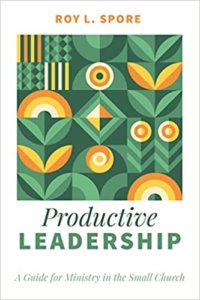Roy Spore says every church has its own culture and a unique set of accumulated values. Productive leaders know how to identify these values and use them to drive decisions, inspire action, and move the congregation forward toward its vision.
Every local church has its own unique culture. That culture is derived from years and decades of the people living together, working together, suffering together, and rejoicing together. Its culture represents the amalgamation of all the things that make that church what it is and the values that they hold dear. Without their culture, the church has no identity, and any threat to that culture brings a danger of losing their identity.
Culture and leadership
Productive leaders understand this and learn to appreciate the culture of their church, even though they may disagree with the character and importance of some of its elements. Thus, productive leaders know how to identify the cultural values that underlie the decisions and actions of the people of the church and then, in turn, use those values to move the church forward toward its vision. In doing so, they are skilled in sharing their appreciation for the accumulated values of the church and, especially the people and events that have given rise to those values over time. They lift them up and use their example as a source of inspiration, but do not dwell on them in a nostalgic manner, creating a longing for what has been. Rather, they draw inspiration from the past leadership, motivating persons to move into the future. Just as past saints rose to meet the challenges before the church, calling forth and naming the values of the culture they created enables productive leaders to inspire future leaders to the same sense of service and commitment.
Can counterproductive cultural tendencies be changed?
What if the cultural values of the church are detrimental or, worse, counterproductive to the church’s ability to fulfill its vision? Clearly, they must be changed in order for the church to move forward, but abrupt and aggressive change that does not honor the existing culture and values of the church is equally damaging. Is it possible to honor values and set them aside at the same time? The answer is “yes,” but doing so requires a great amount of skill in knowing how to appreciate others for their leadership while also looking toward the future vision of the church.
Seeing the best in others
Dismissing or demeaning past leaders and the values they established is not in the spirit of the body of Christ set forth by the apostle Paul and denies a sense of Christian love; finding their positive attributes and lifting them up is, and productive leaders are able to do this. Therefore, a part of the competency of effective leadership involves seeing the best in others, appreciating their values, and working toward an appreciation for the differences on which the church can build its future.
Leading others requires abilities that grow out of relationships and focuses on shared leadership. The competencies necessary for this ability are based on the recognition of both the character and abilities of others and on placing value on what others have to offer in the ministry of the church. Generally speaking, these competencies reflect an appreciation for others and the leadership that they offer, both in the past and in the present moment of the life of the local church. Furthermore, they grow out of a sense of connectionalism and mutual support, knowing that the ministry of the church is the synergy of the ministry of all its members and that the church can be productive only when the members themselves move toward productivity. Therefore, productive church members are grown when leaders share power and responsibility.
 This article is adapted from Productive Leadership: A Guide for Ministry in the Small Church (Wipf and Stock Publishers, 2021) by Dr. Roy L. Spore. www.wipfandstock.com. The book is also available at Cokesbury and Amazon.
This article is adapted from Productive Leadership: A Guide for Ministry in the Small Church (Wipf and Stock Publishers, 2021) by Dr. Roy L. Spore. www.wipfandstock.com. The book is also available at Cokesbury and Amazon.
Related Resources
- The Right Start: Beginning Ministry in a New Setting Video Tool Kit
- Leadership and the Small Membership Church by Lovett H. Weems Jr.
- How Leaders Create Culture Every Day by Ryan Stigile






